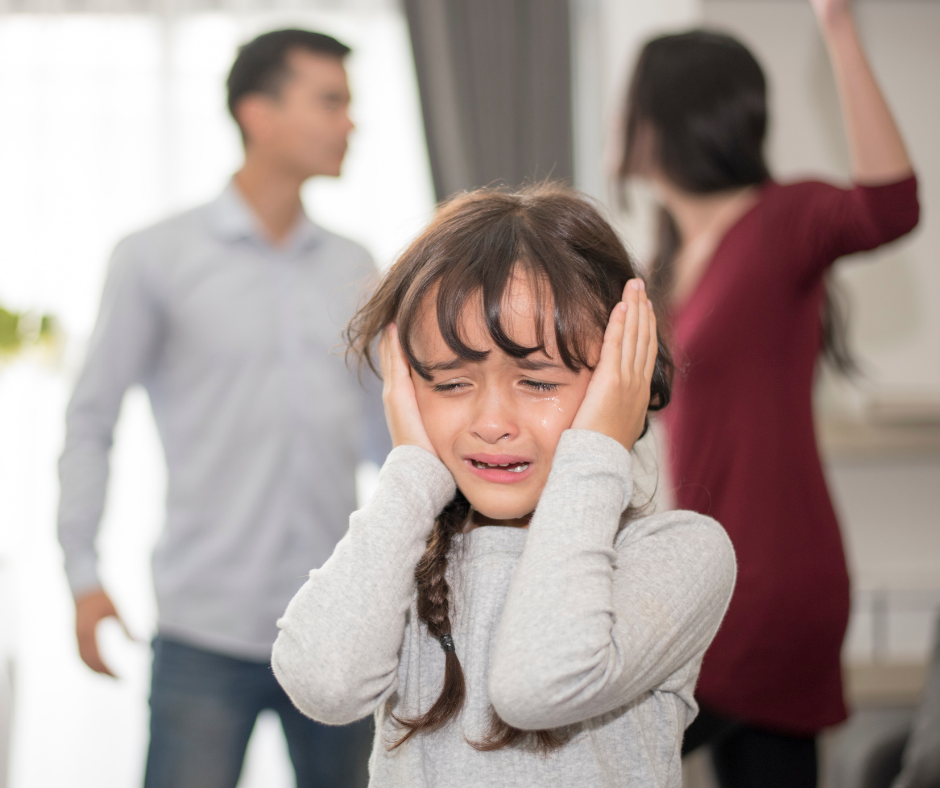Parenting can be challenging, especially when there is uncertainty in the home due to an impending separation and likely divorce.
This year, National Children’s Day falls on Sunday 15 May. The aim of the day is to promote a healthy childhood and the need to protect the rights and freedoms of children and young people. To support this important campaign, we wanted to give you some advice on how to help your children deal with separation. We also explain how the new no-fault divorce law (explained in our blog HERE) will benefit families.
You and your spouse have decided that the relationship has broken down irretrievably. What now?
Every child handles separation differently. Their behaviours may depend on their age and whether learning that you’re splitting up will come as a shock or if they were aware that your relationship with your spouse is unhappy.
We advise that both of you speak to all your children at the same time initially, keeping in mind that conversations need to be age-appropriate.
Plan your first conversation carefully to deliver a consistent message and be mindful of your body language, as children can quickly pick up on any negativity. They may also mirror your behaviour, so try to stay calm.
There is nothing worse than seeing your child distressed but creating an environment where they can show their emotions is positive. Reassure them that feeling sad, angry or upset is normal and perfectly OK.
Here are some pointers if you’re not sure what to say:
- Tell them that you both still love them very much, but your feelings for each other have changed
- Acknowledge that the situation is challenging for them too
- Explain that they are in no way at fault
- Make them aware that circumstances will change, but you will still be a family and both of you will play significant parts in their lives
- Promise that things will get easier in time
Naturally you will worry about your children, but one way to alleviate that is to take time to allow them to share their feelings and listen to them without interrupting. That way, you can act accordingly rather than trying to guess what is going on. This will also make children feel like they matter more and emphasise that you’re still emotionally available to them.
Adjusting to co-parenting
Once separated, your role will evolve. Everyone will have to adjust to new routines and living arrangements, with parental, social and financial changes.
Communicating clearly and regularly with your ex-partner is key to ensuring each knows their responsibilities and establishing a routine that will help children settle as quickly as possible.
It may be wise at this stage to seek help from a mediator who will help you consider aspects you may not have thought about. They will also facilitate constructive conversations to help you plan the practical elements of co-parenting. This may include helping you agree to specific rules at both homes and planning special days, such as birthdays and Christmas. You can find out more about mediation HERE.
Make sure you tell schools, nurseries and clubs what is happening at home so they can look out for, and deal with, any changes in mood or behaviour.
Making decisions for and with your children
One of the toughest aspects of parenting through a divorce is knowing how and when to involve your children when planning their future.
Although it’s essential to allow them to voice their feelings and concerns, some decisions can only be made by adults. You need to be careful not to overburden your children with responsibility.
We’ve outlined some of the key decisions you need to make to help you consider where to set boundaries.
Decisions you could make with your children:
- New leisure activities/hobbies to keep their mind off the separation
- Picking out new clothes if part of your fresh start involves a more grown-up or trendy look
- How they would like their bedroom or personal space decorated and furnished if they are to be spending time in a new house as well as the family home
- Getting a new pet to give them something to focus on and nurture
- A holiday location so you can all relax and have a good time
Decisions you could make on behalf of your children:
- Living arrangements
- Which school they attend
- How time will be divided between parents
- Where they will spend Christmas, birthdays and other special days. Giving them the option of choosing for themselves is like asking them to pick their favourite parent, so you should avoid that
- Any potentially contentious or highly emotive decisions where you need to protect your child’s emotional wellbeing
Decisions you can discuss together, depending on the age of the child and your parenting style:
- House rules such as how much screen time they’re allowed and what time they go to bed
- Frequency of treats and unhealthy snacks
- Rewards for doing housework
How no-fault divorce is better for children too
Children cope much better with parents separating if the agreement is amicable.
Under the new divorce laws, couples don’t need to assign blame to either party whereas previously a reason for divorce would have been cited, even if the spouses were on good terms.
This caused unnecessary bitterness from the start of the process and the negative impact on children was huge. We’re relieved that divorce law has now been reformed to better reflect why modern marriages fail.
It’s important to look after yourself
Separating is a complex and difficult time, so relieve pressure on yourself by accepting that it may take a while for things to settle down. Think of it as a journey on a long, new path rather than a single event.
Don’t be afraid to ask for help if you need it as the more supported you feel, the more you will be able to support your children. We can help with the legal aspects and guide you on your rights. Also, seeing a therapist or coach may help you feel more positive and better able to control your emotions.
Contact us
To request a consultation, please complete the form on our home page. Alternatively, you can get in touch by calling us on 0116 340 0094 or emailing hello@agrlaw.co.uk.

